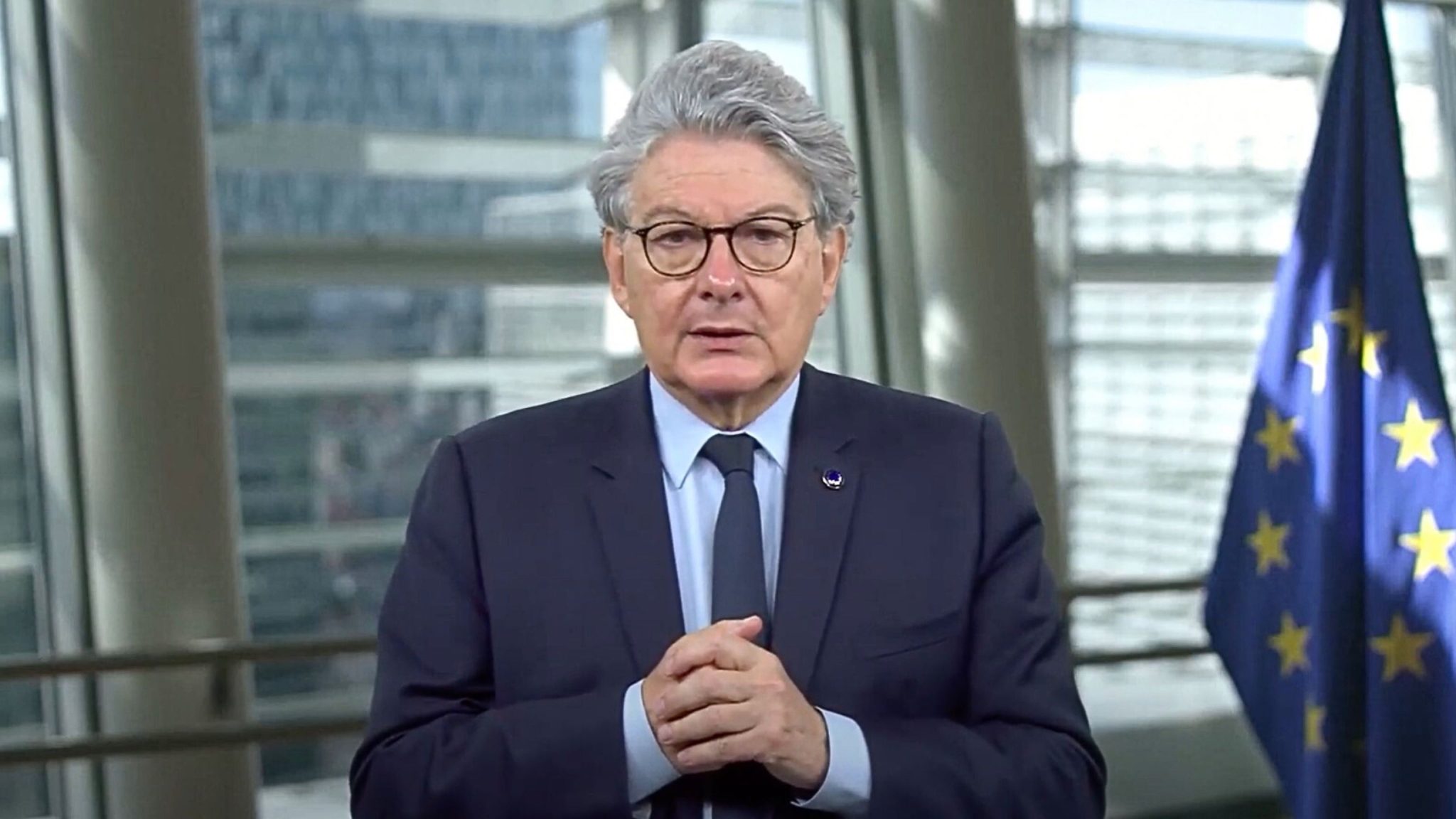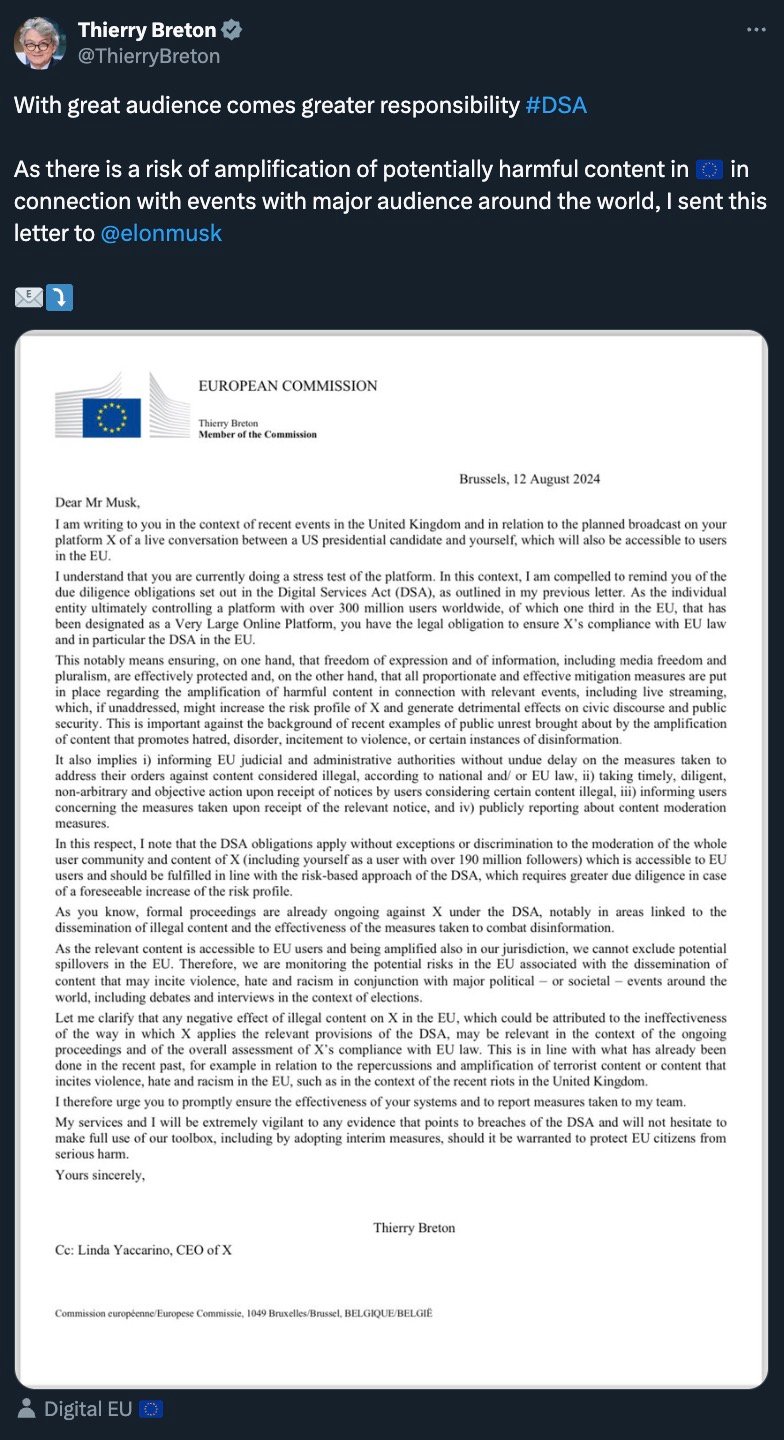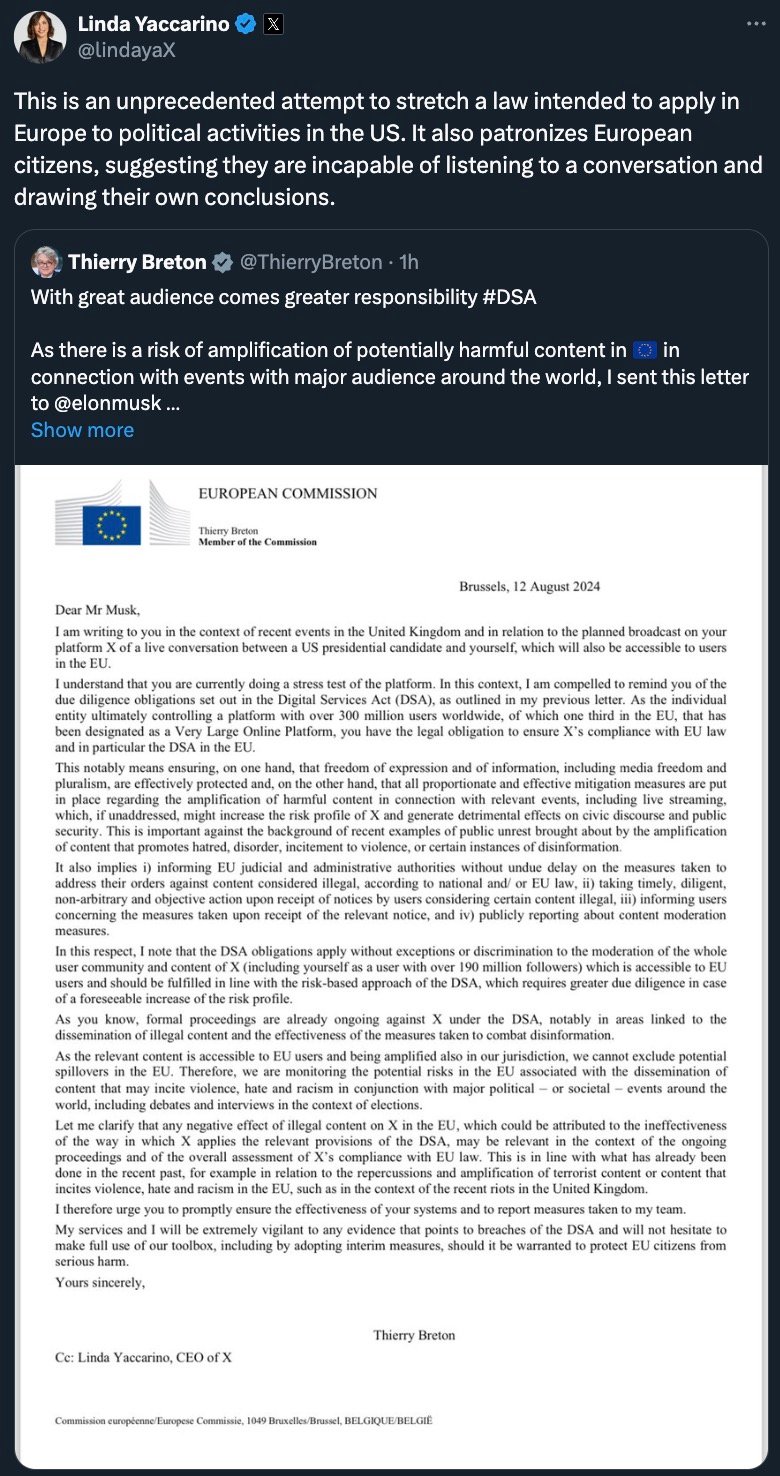by Cindy Harper, Reclaim The Net:

On the day of Elon Musk’s interview with President Donald Trump on X, the EU’s top digital official, Thierry Breton, issued a reminder to Musk of his responsibilities under EU law to curb the spread of “harmful content.”
Breton, the pro-censorship internal market commissioner, emphasized the significance of platform moderation in a letter and a post on X, stating, “With great audience comes greater responsibility.”
TRUTH LIVES on at https://sgtreport.tv/
The European Union, under its censorship law, the Digital Services Act (DSA), mandates that digital platforms stringently monitor online content to shield users from potential “harm.”

This legislation is part of a broader scrutiny of X, which has consistently been targeted by the EU. Breton’s correspondence highlighted that the DSA’s mandates apply uniformly, including to Musk.
The reminder was prompted by concerns over the “risk of amplification of potentially harmful content in the EU,” particularly with Musk’s upcoming interview with Trump and Musk’s own recent remarks concerning the attack on free speech currently being experienced in the UK.
Breton further warned, “My services and I will be extremely vigilant to any evidence that points to breaches of the DSA and will not hesitate to make full use of our toolbox, including by adopting interim measures, should it be warranted to protect EU citizens from serious harm.”
X CEO Linda Yaccarino, responded to Breton’s letter, calling it an “unprecedented attempt to stretch a law intended to apply in Europe to political activities in the US.”
Yaccarino also said that Breton’s demand “patronizes European citizens, suggesting they are incapable of listening to a conversation and drawing their own conclusions.”

As the European Union persists in the stringent enforcement of its censorship law, the imposition of its regulatory well beyond its borders, notably into the United Kingdom—a nation no longer tethered by EU membership—raises profound concerns about the overreach of censorship under the guise of protection.
The EU’s call for rigorous content moderation, even in territories outside its jurisdiction, smacks of an unsettling desire to extend its influence, stifling discourse and dissent not only within its member states but also in nations that have consciously chosen a different path.
The insistence on such broad and pervasive controls over digital content by an entity like the EU, which should ostensibly champion democratic values, is alarming.




